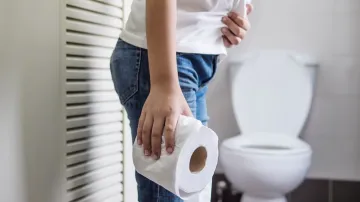Piles, also known as haemorrhoids, are a very difficult disease. In Ayurveda, this disease can be treated to a great extent by making some changes in diet and lifestyle. Know what a piles patient should eat and what things he should avoid.
Due to bad lifestyle and wrong eating habits, one has to face many stomach problems, one of which is constipation. If constipation is not cured in time, it can turn into piles in the future. Piles are not only a serious disease but it is also an inconvenient problem for the patient. There is hesitation in telling the doctor about it. Piles are also known as haemorrhoids. Know how this disease can be prevented from happening, and if it happens, will the treatment be beneficial?
What are Piles?
Pile is a disease in which sitting becomes very difficult. In this, there is swelling inside and outside the anus as well as in the lower part of the rectum. Due to this a wart-like condition is formed there. Sometimes these warts are inside and sometimes they are outside as well.
How many types of piles are there?
Let us tell you that there are two types of piles, the first is bloody piles and the second is internal piles. There is no pain in bloody piles but there is bleeding while going to the washroom i.e. while defecating. In internal piles, constipation occurs in the stomach and the stomach is always upset. It causes a lot of pain. If the problem of piles increases a lot, then there may be difficulty in walking.
How can we prevent piles?
According to the doctor, there are many ways to prevent piles from becoming serious. According to experts, first of all, eat good fibre food. Increase the amount of water and also eat light, easily digestible food. It is most important for a piles patient to stay away from fast food and processed food. According to Ayurveda, eat less of the food that is considered the cause of flatulence. Getting good sleep and staying stress-free is also a treatment for this disease.
ALSO READ: What is Urinary Tract Infection (UTI)? Know causes, symptoms, home remedies to cure bacterial inflammation
